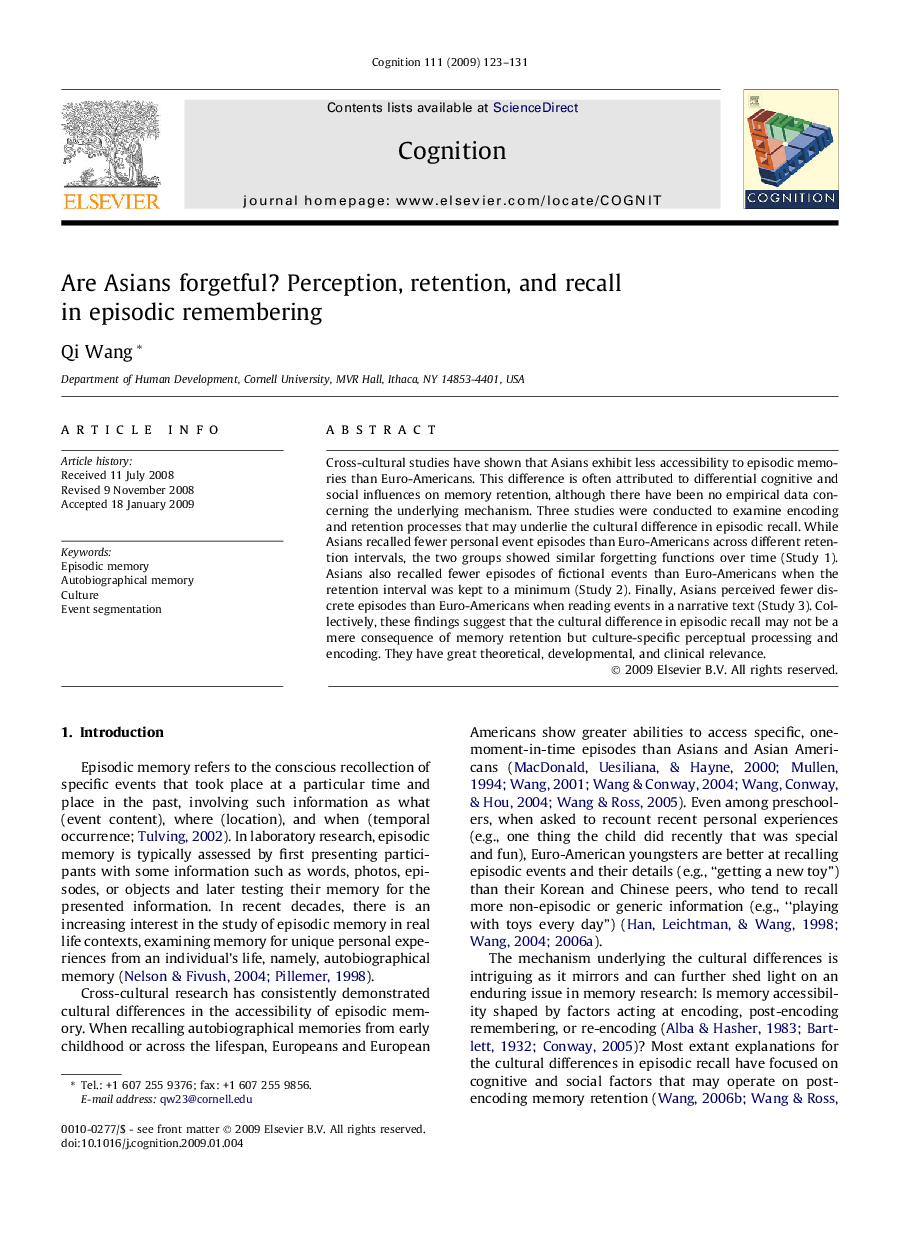| Article ID | Journal | Published Year | Pages | File Type |
|---|---|---|---|---|
| 10457917 | Cognition | 2009 | 9 Pages |
Abstract
Cross-cultural studies have shown that Asians exhibit less accessibility to episodic memories than Euro-Americans. This difference is often attributed to differential cognitive and social influences on memory retention, although there have been no empirical data concerning the underlying mechanism. Three studies were conducted to examine encoding and retention processes that may underlie the cultural difference in episodic recall. While Asians recalled fewer personal event episodes than Euro-Americans across different retention intervals, the two groups showed similar forgetting functions over time (Study 1). Asians also recalled fewer episodes of fictional events than Euro-Americans when the retention interval was kept to a minimum (Study 2). Finally, Asians perceived fewer discrete episodes than Euro-Americans when reading events in a narrative text (Study 3). Collectively, these findings suggest that the cultural difference in episodic recall may not be a mere consequence of memory retention but culture-specific perceptual processing and encoding. They have great theoretical, developmental, and clinical relevance.
Related Topics
Life Sciences
Neuroscience
Cognitive Neuroscience
Authors
Qi Wang,
